Tag: Trial
-

Why venue for Nnamdi Kanu’s trial will change- Justice Tsoho
“And anytime the case comes up, the other courts cannot function. It is really not a good development. But I can assure you that we have actually gone far in finding a solution to it.”
-
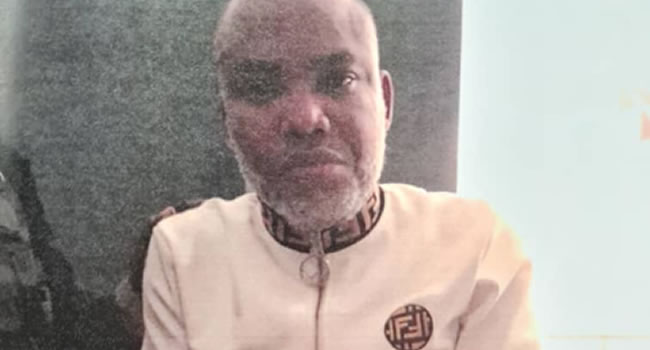
Nnamdi Kanu trial: DSS complies with court order not to block court premises
The Department of State Services, on Wednesday, complied with the advice of a Federal High Court, Abuja, not to block the court premises and environs ahead of the trial of the leader of the proscribed Indigenous People of Biafra (IPOB), Nnamdi Kanu.
The trial judge, Binta Nyako, who fixed today’s sitting at 1p.m., had advised the officers of the DSS to inform their office about her recommendation.
Although Nyako did not specifically made an order, directing the security outfit against such act, she said this would allow the business of the court not to be grounded.
A check at the court early in the morning showed that FHC staff, lawyers, litigants, journalists, among others, had free access into the high-rise building and its surroundings.
And as at the time of filing the report, there was free movement of people and vehicles within and outside the court
The judge had, on Jan. 19, advice the DSS not to take over the security arrangement of the court today until 12pm.
The court instructed DSS to only take control of the court security arrangement when the trial of Kanu, on terrorism charges, resumes.
Nyako had complained that trials of other cases are affected each time Kanu’s trial takes place due to heavy security presence and blockade of roads leading to the court.
She then shifted the terrorism trial till 1pm to ensure that other cases are accommodated.
-
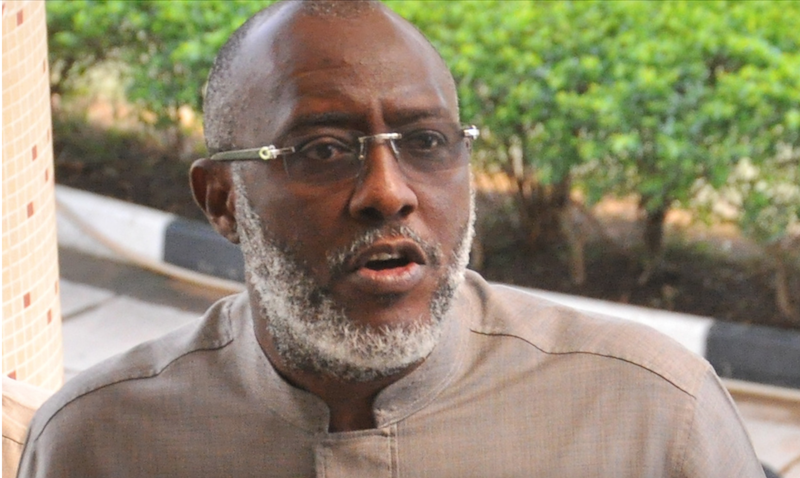
Alleged N400m fraud: Olisa Metuh’s trial reassigned to new judge
The trial of former National Publicity Secretary of Peoples Democratic Party (PDP), Chief Olisa Metuh, in the alleged N400 million fraud has been reassigned to a new judge.
Justice Obiora Egwatu of a Federal High Court (FHC), Abuja, had fixed Oct. 14, 2021, for Metuh’s re-arraignment after the Court of Appeal’s decision which nullified the trial court’s judgment.
But on the adjourned date, Justice Egwuatu was not in court. He was said to have gone for the judges’ seminar in Lagos State. The court, therefore, fixed Feb. 15 for the former PDP spokesman’s retrial.
But a check at Court 9 today, where the matter was expected to take place showed that the case between the Federal Government and Metuh was not on the cause list.
However, it was gathered that the matter, which was yet to commence before Egwuatu, had been reassigned to Justice Emeka Nwite, the new judge who was recently transfered to Abuja division after the retirement of Justice Anwuli Chikere.
But at Court 8, the chamber of Justice Nwite, though Nwite did not sit, a check on the cause list for today, Tuesday, indicated that Metuh’s matter was also not on the cause list
It was, however, gathered at Court 8 that the deputy chief registrar of FHC had informed that many case files would be transfered to Nwite’s court.
The matter was assigned to Justice Egwuatu last year following his transfer to Abuja division of the court.
The Court of Appeal, Abuja had, on Dec. 16, 2020, nullified a Federal High Court judgement that convicted and sentenced Metuh to seven years imprisonment for money laundering.
In a unanimous decision, a three-man panel of Justices of the appellate court held that the judgment of the trial judge, Okon Abang, delivered against Metuh on Feb. 25, 2020, was tainted with bias.
The appellate court held that Abang had by disparaging remarks he made in the judgement betrayed his premeditated mindset against the defendant (Metuh) whom he accused of writing various petitions against him.
According to Justice Stephen Adah who delivered the lead verdict of the appellate court, allowing the trial court’s verdict to stand “will set a dangerous precedent.”
Consequently, it voided the conviction and sentence that was handed to Metuh and his firm, Destra Investment Limited, and remitted the case file back to the high court for a re-trial by another judge.
Metuh was jailed over an allegation that he received the sum of N400 million from the former National Security Adviser, Col. (retd.) Sambo Dasuki, prior to the 2015 presidential election, without contract approval or execution.
His earlier conviction followed a seven-count charge that was preferred against him and his firm by the Economic and Financial Crimes Commission.
-
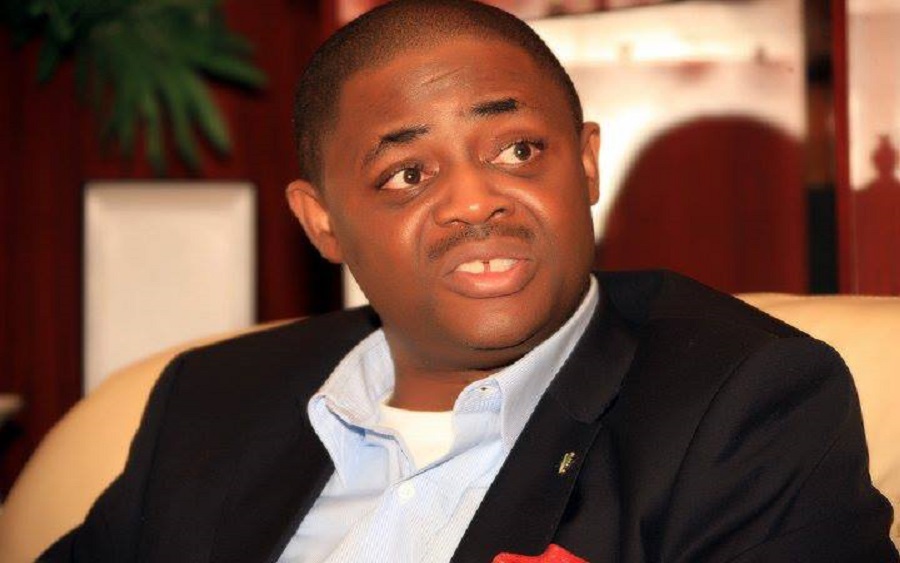
Alleged forgery: Judge expresses displeasure over delay in Fani-Kayode’s trial
Justice Olubunmi Abike-Fadipe of an Ikeja Special Offences Court has expressed displeasure over the delay in the trial of former Minister of Aviation, Femi Fani-Kayode for allegedly forgery.
The News Agency of Nigeria (NAN) reports that Fani-Kayode, along with former minister of State for Finance, Mrs Nemadi Usman were facing trial for alleged money laundering and diversion of N4.9 billion at a Federal HIgh Court in 2018
The prosecution alleged that the former minister had allegedly brought several medical reports to stall the case.
On investigation by the EFCC, the anti-graft agency found the medical reports allegedly obtained by the former minister from several government hospitals to be fake.
On Dec. 17, 2021, the EFCC arraigned Fani-Kayode before the special offences court for allegedly procuring execution of documents by false pretence; use of false documents, fabricating evidence and use of fabricated evidence.
At Friday’s proceedings, Justice. Abike – Fadipe frowned at the prosecution and the defence counsel for wasting the time of the court as the trial could not commence.
Abike-Fadipe enquired from the EFCC counsel, Mrs Bilikisu Buhari about the amended charge the anti-graft agency had sought to file against the former minister.
Buhari, in her response, said that the EFCC had not taken any action on the amended charge.
Defence counsel, Mr Wale Balogun, also told the judge he had not filed an application to get a copy of the proof of evidence from the EFCC because the EFCC had not amended it charge.
The judge said the parties in the suit had wasted precious judicial time of the court, noting that Balogun ought to have applied for the proof of evidence without waiting for the EFCC’s amended charge.
The judge adjourned the case until Feb. 23 for commencement of trial.
-
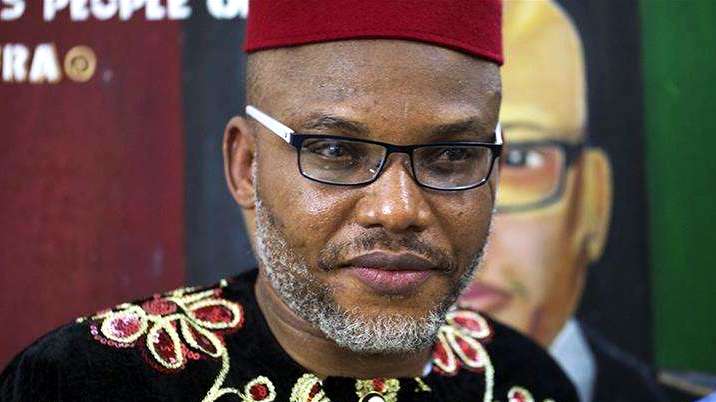
Alleged terrorism: Nnamdi Kanu’s trial set to resume in Abuja
The trial of the leader of the proscribed Indigenous People of Biafra (IPOB), Nnamdi Kanu, resumed on Tuesday in a Federal High Court in Abuja.
The News Agency of Nigeria (NAN) reports that the Federal Government, through the Office of the Attorney-General of the Federation (AGF), on Monday, filed an amended 13-count bordeting on terrorism against Kanu.
The charge was raised from seven counts earlier filed against the IPOB leader.
The fresh charges border on treasonable felony and terrorism following the pending charges he was facing since 2016.
NAN reports that there was a heavy security presence at the Federal High Court complex in Maitama, Abuja.
Earlier, Chief Mike Ozekhome, SAN, told newsmen that he took up as the lead counsel in the terrorism case filed against Kanu, because he briefed him to do so.
Ozekhome said: “I took up his (Kanu) matter because he briefed me and I believe that he deserved justice and justice must be served.
Ozekhome arrived in court in company of another counsel, Mr Ifeanyi Ejiofor.
Ejiofor confirmed that the changes had been effected in the defence team.
NAN reports that Kanu and other persons were re-arraigned before Justice Binta Nyako on amended 11 counts, comprising terrorism, treasonable felony, managing an unlawful society, publication of defamatory matter, illegal possession of firearms and improper importation of goods.
The original charges filed on December 18, 2015 had only six counts with exclusion of terrorism which is now the 11th count in the new charges filed on November 11, 2016.
Those originally charged along with Kanu were Benjamin Madubugwu and David Nwawuisi.
NAN reports that Kanu was arrested on Oct. 14, 2015 on 11 count charge bordering on terrorism, treasonable felony, managing an unlawful society, publication of defamatory matter, illegal possession of firearms and improper importation of goods, among others.
A judge at the Federal High Court, Abuja revoked Kanu’s bail that was granted him on health ground and issued a bench warrant for his arrest on the same date, over his failure to appear in court for hearing.
He has, upon jumping bail, been accused of engaging in subversive activities that include inciting violence through television, radio and online broadcasts against Nigeria and Nigerian State and institutions.
Kanu was also accused of instigating violence especially in the Southeastern Nigeria that resulted in the loss of lives and property of civilians, military, para military, police forces and destruction of civil institutions and symbols of authorities.
-

Witness’ absence stalls Naira Marley’s fraud trial
The absence of a prosecution witness, Mr Augustine Anosike on Tuesday, stalled the ongoing trial of a popular Nigerian musician, Azeez Fashola, a.k.a Naira Marley before a Federal High Court, Lagos.
Anosike, a forensic analyst, is testifying as a second prosecution witness in the case.
The Economic and Financial Crimes Commission (EFCC) is prosecuting the defendant on charges bordering on cyber crime.
Fashola was arrested on May 14, 2019.
The musician, who sang the popular song: “Am I a yahoo boy”, was consequently, arraigned on May 20, 2019 before Justice Nicholas Oweibo, but he pleaded not guilty.
The court had accordingly, granted him bail in the sum of N2 million with two sureties in like sum.
Trial had since commenced in the case and the second prosecution witness who concluded his examination in chief on Oct. 27, was scheduled for cross examination on Tuesday.
When the case was called, Mr Rotimi Oyedepo announced appearance for the prosecution, while Mr Olalekan Ojo (SAN) appeared for the defendant.
Oyedepo informed the court that his witness was unavoidably absent on what he termed “compassionate grounds”
He added that the witness is currently in his village, and urged the court to graciously grant an adjournment for Dec.14.
In response, defence counsel, told the court that, “ it was rather unfortunate that the matter could not proceed today, the prosecution ought to have given sufficient notice of the witness’ absence.”
Ojo said that in the circumstances, there is nothing he could do, but urged the prosecution to ensure that adequate information reaches him earlier in similar circumstances.
Meanwhile, the prosecutor quickly clarified that, “I only got information as to the witness’ absence, at about 9.30a.m. while still in the parking lot of the court this morning.”
He noted that it is not in the character of prosecution to waste the time of the court, adding that the witness will be present on the next date of adjournment.
Following agreement of parties the court adjourned the case until Feb. 16 and Feb. 17 for continuation of trial.
The court vacated the previous date of Dec. 14 on the grounds that the date is no longer available for the court, following activities for the new legal year.
According to the EFCC, the defendant committed the offences on different dates between Nov. 26, 2018 and Dec.11, 2018, as well as May 10, 2019.
The commission alleged that Fashola and his accomplices conspired to use different Access Bank ATM cards to defraud their victims.
It alleged that the defendant used a bank credit card issued to another person, in a bid to obtain fraudulent financial gains.
The EFCC also said that the defendant possessed counterfeit credit cards belonging to different people, with intent to defraud which amounted to theft.
The alleged offences contravene the provisions of Sections 1, 23 (1) (b), 27 (1) and 33(9) of Cyber Crime (Prohibition) Prevention Act, 2015.
-
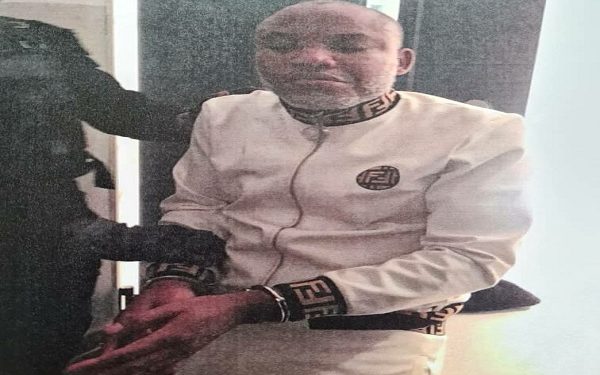
Photos: DSS produces Nnamdi Kanu in court for trial amidst heavy security; bars journalists, associates, others from entry
The leader of the proscribed Indigenous People of Biafra (IPOB), Nnamdi Kanu, has been brought to court by officials of the Department of State Security (DSS) for his trial.
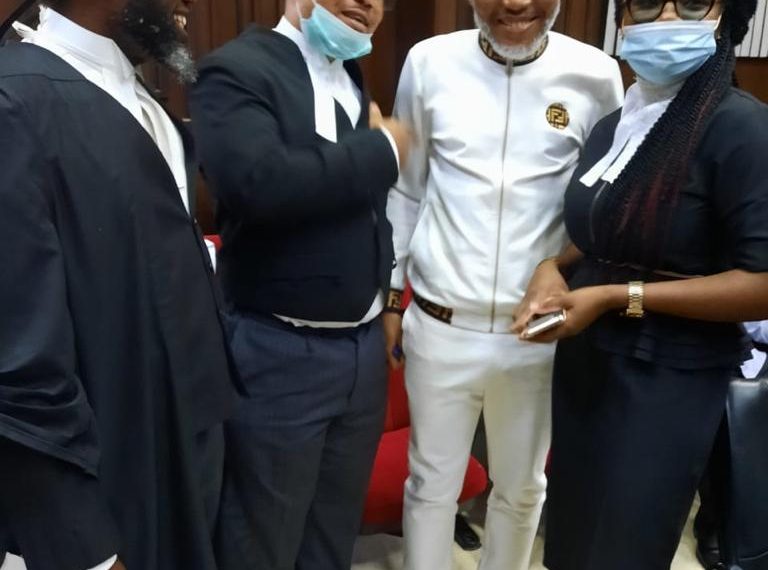 He was brought into the courtroom amid heavy security with journalists denied access to film or take pictures of the embattled IPOB leader.
He was brought into the courtroom amid heavy security with journalists denied access to film or take pictures of the embattled IPOB leader.Barrister Ifeanyi Ejiofor, lead counsel to Kanu confirmed to journalists that his client was already in court for his trial. He also sent to journalists, pictures of them together in the courtroom.
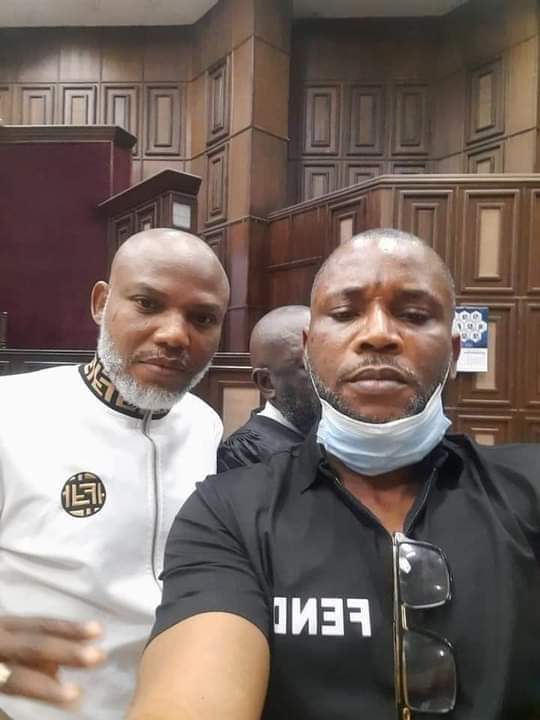 As at the time of compiling this report, no journalist has been allowed entrance into the courtroom.
As at the time of compiling this report, no journalist has been allowed entrance into the courtroom.DSS officials had earlier set up a barricade at the entrance of the Federal High Court where the case is to be heard as they prevented reporters and officials from gaining entry, resulting in angry scenes and arguments.
This comes three days after the Federal Government filed seven amended charges bordering on treasonable felony and acts of terrorism against him.
The trial Judge Justice Binta Nyako had adjourned proceedings till today due to Kanu’s absence in court on Monday, insisting the trial will not go on in his absence.
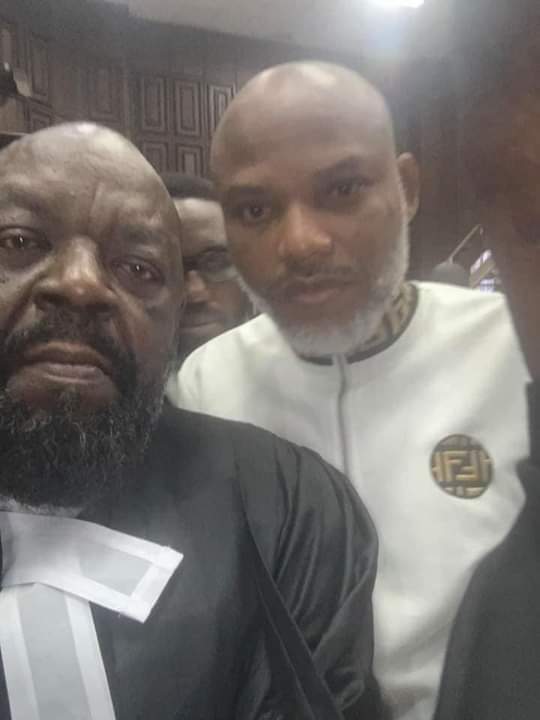 Kanu was first arrested in 2015 on charges bordering on terrorism, treasonable felony, managing an unlawful society, publication of defamatory matter, illegal possession of firearms, and improper importation of goods, among others.
Kanu was first arrested in 2015 on charges bordering on terrorism, treasonable felony, managing an unlawful society, publication of defamatory matter, illegal possession of firearms, and improper importation of goods, among others.He was initially detained and arraigned in court, but he fled the country in 2017 after he was granted bail for medical reasons.
The embattled IPOB leader was later sighted in Israel, but he was intercepted on June 27 and repatriated to Nigeria to face the charges for which he was arrested – about four years since he jumped bail.
His repatriation followed an operation conducted by Nigerian security operatives in collaboration with international partners.
On July 26, Justice Binta Nyako of the Federal High Court sitting in Abuja adjourned the trial of Kanu until October 21 after the DSS failed to produce him in court.
She faulted the action of the security outfit and asked the prosecution to be diligent with dates whenever she gives one, stressing that it was important for Kanu to be present at his trial.
-

Karim Benzema absent as sex tape blackmail trial begins
The trial of Real Madrid striker, Karim Benzema for attempted blackmail linked to a sex tape featuring his former France team mate, Mathieu Valbuena started in Versailles on Wednesday.
Benzema was not present in court, with his lawyers citing his professional obligations.
He played with Real in the Champions League against Shakhtar Donetsk in Kiev the previous night, and faces a Spanish League Clasico against Barcelona on Sunday.
The 33-year-old Benzema is accused of being complicit in the attempt to blackmail Valbuena, who was threatened in a phone call in June 2015 with the publication of the video.
Benzema was allegedly involved in “aiding and abetting an extortion attempt.”
He faces up to five years in prison and a fine of 75,000 euros (88,000 dollars), according to prosecutors.
Four other men said to be involved in the affair are also charged at the trial expected to last until Friday.
Due to the involvement in the affair, Benzema missed the 2016 European Championship in France, their World Cup win in 2018 and only returned to the national team this summer.
The player’s defence has rejected the allegations and on Tuesday the L’Equipe sports daily again quoted his lawyers demanding he be cleared.
-
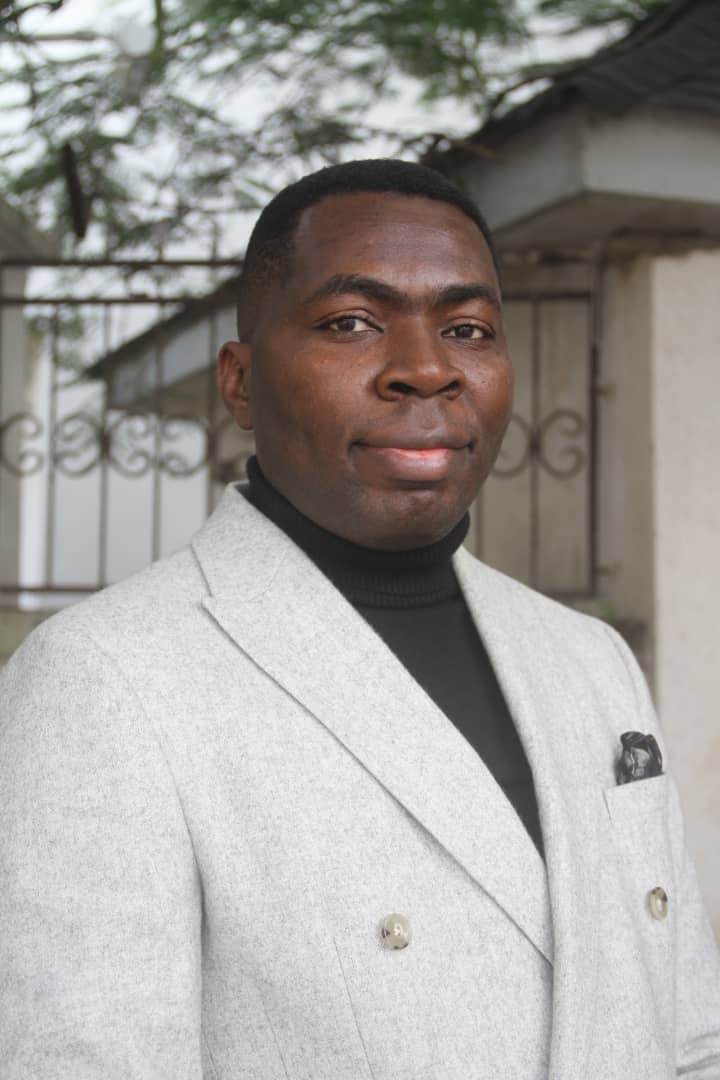
TNG Book Review: Re-visiting The Trial of King Jaja of Opobo and deportation by British Colonial Government: A Legal Analysis of The Trial of King Jaja of Opobo in 1887
TITLE: Re-visiting The Trial of King Jaja of Opobo and deportation by British Colonial Government: A Legal Analysis of The Trial of King Jaja of Opobo in 1887AUTHORS: Dr Tonye Clinton Jaja and Dr Reginald Chikere KekePAGES: 173REVIEWER: Emman OvuakporiePUBLISHERS: Association of Legislative Drafters and Advocacy Practitioners-ALDRAPISBN:978-978-995-006-5Introduction:The book Re-visiting The Trial of King Jaja of Opobo and deportation by British Colonial Government: A Legal Analysis of The Trial of King Jaja of Opobo in 1887 is a product of a well investigated and researched work by Dr Tonye Clinton Jaja a direct descendant of King Jaja of Opobo and Dr Reginald Keke Chikere laced with legal reviews as to the injustice meted on one of the greatest Kings in sub-Sahara Africa.Its originality is not really in doubt as both Jaja and Chikere dug out hard facts archived in the British Parliament over 135 years ago is a clear testimony to this fact.The background analogy and the narratives from the first chapter to the last are overwhelming and the flawless presentation of facts tells it all.
Chapter One:This chapter vividly illustrates with concrete evidence with dates the historical background of King Jaja of Opobo and the battles he had with the British imperialists and what led to his trials.With native intelligence, King Jaja demonstrated his political will as to his rights on imposed mercantile orders that were not favourable to his people.This narrative in the chapter explains how Jaja is well-grounded in the area’s economic
geography, Jaja established a settlement “where he would have easy access to and control of all canoe traffic to palm articles recognizes Jaja’s right to collect comey or toll from British traders as paid in Bonny, and the final article states:
After April 5, 1873, the King of Opobo shall allow
no trading establishment or hulk in or off Opobo
Town, or any trading vessel to come higher up
the River than white man’s beach opposite
Hippopotamus Creek. If any trading ship or
steamer proceeds further up the River than the
creek mentioned, after having been fully warned
to the contrary, the said trading ship or steamer
may be seized by King Jaja, and detained until a
fine of 100 puncheons be paid by the owners to
King Jaja
This last article barred European traders from the
interior markets and grants such to the sole patronage of
African traders. Jaja therefore consolidated his grip on
hinterland commerce and exercised authority over British
traders in his coastal Opobo territory. Effectively in charge of
Opobo and with a strong military backing, Jaja appropriated
comey paid by British traders to himself without regard to
the chiefs who migrated and established Opobo with him.
Even though some were dissatisfied, none could query Jaja’s
action in the open. By the late 1870s, Jaja had become one
of the most influential (if not the most influential) African
traders and well-known figure throughout Eastern Niger
Delta and beyond.
Chapter Two:
This chapter provided a historical analysis of the legal issues involved in the said trial.Here, this chapter delved into the analysis of the trial of King Jaja from the Perspective of
Legal Principles of Fair Hearing as a Human Right and Maxims of Equity
“You cannot put something on nothing and expect it to stay there. It will collapse. So, will this
judgment collapse if the statement of claim is a nullity.”The authors using established judgements by Lord Denning in Benjamin Leonard Macfoy Vs.
United Africa Company (UAC) Appeal No. 67,
1960 judgment delivered on 27th November, 1961.The above statement applies to the verdict against King Jaja
by Sir Admiral W. Hunt- Grubbe at Government House, Accra in December, 1887. The entire trial and the resultant
judgment /verdict, (in the eyes of the law) amount to a nullity and cannot stand.It collapses because there was no
legal basis for the said trial of King Jaja by Sir Admiral W.
Hunt- Grubbe.Using arguments for and against, reasons were adduced why King Jaja was not given a fair hearing.Below are the reason(s) for the assertion. These reasons are
presented in simple language for easy understanding by
readers who may not be lawyers:
1. Arbitration not litigation (by a judicial inquiry) was the
stipulated method for Resolution of disputes under the 1884
Protectorate Treaty
In the first instance, under the Protectorate Treaty of 1887,
resort to (and exhaustion) of arbitration procedure was
stipulated as the one and only method of resolution of any
dispute arising between King Jaja, his Chiefs and British
colonial officials.
For the avoidance of exact arbitration clause of the
Protectorate Treaty, 1884, is reproduced hereunder:
“Article VIII – if any vessel should be wreaked
within the Opobo territories, the king and Chiefs
(of Opobo) further engage to do all in their
power to protect the persons and property of the officers, crew and others on board such wrecked
vessels. All claims for salvage due in such cases shall, if disputed, be referred to the British consular or other officer for arbitration and
decision”
Contrary to the explicit terms of Article VIII of the Protectorate Treaty, 1884, Sir Harry Johnston, the British
Consul/ Official did not refer the alleged dispute to an Arbitration Panel. To the Contrary, King Jaja was referred to
face “charges” before a judicial inquiry panel chaired by Sir
Admiral W. Hunt- Grubbe.
The Hansard of 6th March. 1888 provides evidence that “Rear
Admiral Sir William Hunt- Grubbe, commanding the West
Africa Squadron, was directed to inquire into the charges
against King Jaja of Opobo.”
In other words, the dispute between King Jaja and the British
(“have you at any time barred trade to the inland districts
beyond your jurisdiction such as Ohombela…)’ was
couched as criminal charges without resort to arbitration, in
the first instance.
“There are several differences between arbitration and
litigation. The most significant difference is that litigation is
handled in Court and must adhere to the strict rules and
statues that govern court proceedings. Arbitration is
handled outside of the Courts and can be a much speedier
and informal process. However, arbitration can only take
1 Verdict/judgement of Sir Admiral W. Hunt- Grubbe, 14 December 1887,
place if it is provided for in a contract agreed upon by the
parties”2
From the foregoing, it is obvious that the British Colonial
Officials, did not comply with Article VIll of the Protectorate
Treaty, 1884 to the extent that they failed to refer the
dispute to an Arbitration panel in the first instance.
To the contrary, they referred the dispute (the Ohombele
dispute) between them and King Jaja to a more formal
process (judicial inquiry) different from the much more
informal proceedings characteristic of arbitration as
stipulated under the Protectorate Treaty, 1884 which they
alleged that King Jaja had violated.
Curiously, the question arises, considering that resort to
litigation presupposes that a matter is “handled in the court
and must adhere to the strict rules and statutes that govern
court proceedings” under what legislation or statute was the
trial of King Jaja conducted?What statute or legislation granted jurisdiction to Sir
Admiral W. Hunt- Grubbe to undertake the trial of King Jaja?The answer to these questions are in pages 20-43 of the book and many more.Chapter Three:Jaja and Chikere in this chapter applied International Law as a yardstick to determine whether King Jaja of Opobo was given a fair hearing from being deceived and ferried to Ghana where he was tried.The narrative here explains that International Law on Reparation as Applicable to Descendants of King Jaja and Opobo “International Law consists of rules and principles governing
the relations and dealings of nations with each other, as well as the dealings between states and individuals and
relations between international organisations… in contrast,
private International Law deals with controversies between
private persons” – Cornell Law School, Legal Information Institute, Cornell University.The above quotation demonstrates that the dealings to the
trial of King Jaja of Opobo as conducted by British Colonial
Officials occurred within the realm of international law.Regardless of the legal inexperience of the descendants of
the victims of colonialism, the recent trend under International Law, is that inter- governmental and
supranational organisations are now urging European nations (Former Colonial Governments) to take a proactive step(s) by providing “some form or reparations such as
offering public apologies and the restitution of stolen artefacts to the countries of origin“ – This is contained in the
text of Resolution 2018/2899 (RSP) adopted on 26th March,
2019 by the European Parliament which called on its
member states (including the United Kingdom which
violated King Jaja’s right to fair hearing).
In accordance with recent developments under International
Law (such resolution 2018/2899 (RSP) adopted on the 26th
March, 2019 by the European Parliament which enjoined
European Nations including (United Kingdom to take action
for “past and ongoing injustices and crimes… committed
under European colonialism” by offering some form of
reparations such as offering public apologies and restitution
of stolen artefacts to countries of origin, the government of
the United Kingdom is enjoined to issue a public apology to
the descendants of King Jaja of Opobo and to also provide
Restitution and Compensation for the remainder of the total sum of £11,000 (eleven thousand Great British Pounds
Sterling) which it Commenced Payment in the year 1940.Already in 2013, the government of the United Kingdom
established a precedent in this regard when its then Minister
of Foreign Affairs (William Hague) issued a public apology
and went further to pay the total sum of $125,000,000:00
(one hundred and twenty-five million US Dollars) to victims
of colonial crimes in Kenya.This was the outcome of a law
suit with full citation as: Ndiku MUTUA, Paulo NZILI,
Wambugu NYINGI, Jane Muthoni MARA & Susan NGONDI
(Claimants) and THE FOREIGN AND COMMONWEALTH
OFFICE (Defendant) (2011) EWHC 1913 (Q.B) Case No: HQ
09X02666, Royal Courts of Justice Strand, London, Date:
21/07/2011
The five Claimants in this case are veterans of the MauMau
movement which participated in the struggle for
Independence of Kenya from British Colonial rule during the
1950s. The claimants alleged that the British Colonial
government official(s) argued that no claim could be
brought against the United Kingdom government since the
colonial government had acted on its own and upon
Independence it was the Government of Kenya that
inherited
the rights and liabilities of the colonial
administration.Furthermore, the principal argument of the government of the United Kingdom was that too much time
had elapsed that the majority of those on the defendant’s side who might have given oral evidence are now dead and
that fair trial is no longer possible due to the Limitations Act
1980. The trial judge rejected the arguments of the British
government.Another important development under International Law
that provides a precedence for reparation is the Herero and
Nama People of Namibia. On Friday 28th May, 2021, more
than a century after the “genocide” of the Herero and Nama
tribes by the previous colonial government of Germany, the
current government of Germany formally acknowledged the
genocide of the Herero (Ovaherero) and Nama (Namaqua)
people. The German government agreed to issue an
apology, and committed to providing €1.1 billion (£940,000,000) towards reconstruction and development
projects in Namibia. A declaration will be signed by Maas following which it will be ratified by the Parliaments of both
countries. President Frank-Walter Steinmeier of Germany’s
crime in front of the Namibian Parliament while the
government of Namibia commended this as a victory, Herero and Nama leaders exhibited some scepticism as the
public apology statement did not include reference to
“compensation” or “reparation.”Application of the International Law Principles relating to
reparations to the case of King Jaja of Opobo having established that both UN and European Parliament
Resolutions and even precedents from Courts supported
the payment of compensation and issuance of public
apology to victims of colonial wrongs it logically follows that
descendant of King Jaja of Opobo ought to be recipients of
a similar gesture of public apology for the trial and conviction of King Jaja in 1887. Such a public apology by the
Government of the United Kingdom can be submitted to the
current king of Opobo Kingdom who is a grandson of King Jaja.Identification of King Jaja’s descendants are made even easier by the fact that the British Colonial government
commenced the payment of compensation in 1944. A full list
of the recipients of this compensation is provided in
Appendix IV of this book/monograph. Out of the total sum
of £22,420 earmarked only £11,420 was paid by the British
Colonial government in 1944. This implies that a balance of
£11,000 is outstanding and unpaid. Both the government of the United Kingdom and officials of the Foreign,
Commonwealth and Development Office of the United Kingdom ought to compute the current value of £11,000 and
pay same to the current Amayanabo of Opobo (King of
Opobo) for distribution to the descendants of Opobo.In addition to the said sum of £11,000, other monies that
ought to be paid to the descendants of King Jaja are the total value of lost earnings of King Jaja of Opobo from the
year 1887 to 1891. According to available records, King Jaja
of Opobo’s annual income from the palm oil trade was
£10,000 multiplied by four (4) years is £40,000. This should
be computed at the current exchange rate value.
Another aspect of lost earning is the loss arising from the
sudden stoppage of the education of the children of King
Jaja of Opobo due to the trial and exile of King Jaja in 1887.In this same chapter, details of such payments are properly presented for readers to easily discern and how the British can compensate the descendants of King Jaja of Opobo.Chapter Four:
Here the authors simply established the fact that the trial of
King Jaja of Opobo in 1897 did not comply with International Law Standards of fair hearing and equity. It was also
established that in accordance with both precedents and International Law principle of reparation, the payment of a
sum of eleven thousand British Pound Sterling (£11,420)
the British Colonial Government serves as persuasive
precedent that compensation ought to be paid for colonial
crimes such as those against King Jaja.
It is recommended that additional compensations for lost
earnings etc.
For full details of the details of the said claim for reparation
see Appendix v of this book
page 57Conclusively, the forword to this book was written by His Majesty,
King Jaja of Opobo
King (Dr) Dandeson Douglas Jaja, Jeki V, Treaty King
Natural Ruler and Amanyanabo of Opobo
Chairman, Rivers State Council of Traditional Rulers a descendant of King Jaja, read part here where he stated that” I cannot imagine the depth of anguish
and deprivation, suffered by our ancestors at the time of his kidnap.Nothing can be compared to the state of confusion in Opobo
Kingdom, especially in the Royal House when he was kidnapped and
forcefully removed.The pain and anguish we suffer today when our loves ones are kidnapped in Nigeria cannot be compared in any way
to what his kingdom, his family, relations and friends suffered on the
18th September, 1887 when he was kidnapped and forcefully removed
from his kingdom against his wish. For four years Opobo kingdom was
thrown into mourning till he was finally killed by Britain, buried,
exhumed and reburied in Opobo kingdom in September 1891, two
months after his death.
The authors, Dr. Tonye Clinton Jaja, one of the descendants of King
Jaja and his co-author Dr. Keke have my authority to write on
reparation for the descendants of King Jaja and Opobo kingdom as a
build up to extracting an unreserved apology, and payment of
appropriate reparation by the Government of Britain. They have been
known to have apologized for lesser crimes than the kidnap, exile and
killing of King Jaja. We hold Britain accountable for King Jaja’s death
and for all the ill treatment he received at their hands.
We call on all lovers of justice, friends of King Jaja, friends of Opobo
kingdom and the Federal and Rivers State Governments, to join in this
fight to finally compel Britain to render unqualified apology to the
descendants of King Jaja and compel them to pay adequate
reparation for the inhuman treatment King Jaja suffered at their
hands. This done, it is hoped, his descendants can find closure at last.This book is a rarity in the Nigerian book shelf because of its originality as both authors chronicled the events, places, historical facts, legal reviews vividly displayed. It’s a must read for law students, historians, legal experts, journalists and students of political science. -
What Mark Zuckerberg’s Trial Says About Us – Azu Ishiekwene
Azu Ishiekwene
The founder of Facebook, Mark Zuckerberg, is having a torrid time. One by one, his worst fears are coming true.
According to Sheera Frenkel and Cecilia Kang, authors of An Ugly Truth, a scathing tell-all on Zuckerberg and his second-in-command, Sheryl Sandberg, the Facebook founder has been troubled for years by three deadly fears: the prospect of hackers breaching the site, his employees being harmed, and the breakup of his empire.
He’s had them coming for the past five years, at least. But in just one week, his deadly fears have not only come to him with chairs, they have arrived at Menlo Park with their own shades as well.
Just before the disruption of services on Facebook, Instagram and WhatsApp for six hours on October 4, an engineer and former product-manager-turned-whistleblower, Frances Haugen, dragged out Zuckerberg in a devastating interview and public testimony, accusing Facebook, the world’s largest social technology platform, of putting profits above safety.
If Facebook was a country, Haugen’s testimony might have been treated not just as a rebellion, but a coup attempt. And Zuckerberg is not just another tyrant in a banana republic. He is a potentate with a fan base of over three billion, revenue of $85.9 billion and a market value of $800 billion. Facebook is bigger than many countries, and Zuckerberg, more influential than presidents.
Zuckerberg has rejected the whistleblower’s charges, saying they are untrue. But the crux of the matter is whether Facebook is exercising a duty of care remotely matching the brand’s monumental influence and impact.
After the Cambridge Analytica scandal and concerns that right wing groups, especially, were using social media to stoke hate crimes and spread dangerous and misleading information about public health issues in the wake of the Coronavirus pandemic, the heat has been turned on Facebook to raise its game.
The jacket of An Ugly Truth is lined with statements of remorse by Zuckerberg and Sandberg since 2006, promising distressed subscribers a new day and pledging a new leaf.
But it would seem that the fulfillment of those promises is hardly matched by the brutishness with which the brand seeks to impede or destroy its competitors using the massive trove of data at its disposal.
I’m not on Facebook or Instagram. Yet, I recognise that I’m caught in the predatory web of one of the behemoth’s most egregious platforms – WhatsApp. My addiction is not Zuckerberg’s fault; it’s entirely mine.
Long before Haugen laid out her charges, I had been having a deep personal conversation with myself over the potential impact that WhatsApp, which I signed up to only about four years ago, was having on me.
I sensed that I was getting addicted to WhatsApp, but like most addicts going through a rite of passage, it took a long time to convince myself that it was happening. I was in denial.
I would pick up my phone in the morning, determined to reply just one or two messages or check the time. And then, I would find myself drifting from tray to tray, clearing message after message and leaping from one tray to the other as notifications stream in with the seducing charm of a red-light district.
Some say it’s an ecosystem, a network of family and friends connected by shared interests, experiences and banter. In a way it is.
It’s a far more connected world today than it was in the 1980s when my aunt migrated to the UK and the whole brood that saw her off to the airport in two buses wept at the lounge as she departed. Speaking with her again from Nigeria which, at the time, had less than 800,000 telephone lines in a population of over 100 million was always going to be a misery. Her departure was like a funeral.
In a lot of ways, things have changed for good, empowering millions of young people and forcing greater transparency in government. But in some ways, too, it feels like an eco-prison. Once you’re online, everyone in your community knows you’re there. Even when you disable your “Read Receipts”, stalkers still find a way to figure you’re in the yard and pounce.
To keep my space and sanity, I find myself leaping from one message tray to another, dodging unwanted incoming calls, and at the same time, taking care not to miss important information in the swamp of things.
At first, it was an adventure. But as time went on, the cons overwhelmed the pros of my daily WhatsApp experience. I began to wonder if flitting from one message to another with hardly enough time to process and digest one before the next, was not dangerous, if not to my mental health, perhaps to my mindfulness.
It was also difficult to remember where I got a particular information from – which chatroom, which message tray, or in fact, which platform. The whole thing would slowly blur into a fuzz, lacking in depth, context or meaning, yet bandied about by “contacts” as gospel.
Algorithms feed on our vulnerable, curious sides as humans. Most adults can, however, begin to turn the tide once they realise that the bulk of what exists in the “chat-o-sphere” is for the benefit of the propagators and those mining the data.
As the social media eco-prison took hold in my world with memes displacing touch and tech-speak and abbreviations replacing context and right spellings, flightiness became a real danger. I had to improvise to catch my sanity. And that meant letting necessity drive my social engagements, instead of the other way round.
Friends with whom I shared my experience told me it was a real struggle for them, too. They were also fighting their own social media demons, but of greater concern was the mental health of children of school age who appear to be spending more and more time on Facebook and other forms of social media, with all the attendant risks and dangers.
Yet, it would be unfair to scapegoat Facebook or single out any other social media platform for all the social problems of contemporary society. Throughout history new forms of technology have elicited both excitement and fear among the populace.
Socrates never wrote, because he said the invention of writing would worsen forgetfulness and his student, Plato, agreed with him.
The invention of the telephone was greeted with criticism that it was soon bound to make humanity a transparent jelly heap. And when television came along, it was scorned as a useless wooden box incapable of holding the attention of any serious-minded person.
The dramatic change in technology, especially in the late 1980s and early 1990s has spooked fears of job loss and weakened control. There are also fears related to privacy, cyber security and mental wellbeing and children’s safety. Yet, inventors and innovators have always prevailed and created opportunities for a better world.
Facebook may be in the eye of the storm now but all social media platforms have the same predatory instinct for which Zuckerberg is being called out. Haugen’s expose, coupled with political pressure on Big Tech from a number of countries around the world may lead to some soul-searching in Silicon Valley. But I doubt very much that we’re on the eve of a meltdown.
Zuckerberg and other tech entrepreneurs who have changed our world never pretended they’re out to finish what Mother Teresa started. They are in it for profit. The only thing that keeps their genius going is to build, buy or bury.
Shouldn’t they care about safety and people? Of course, they should. If they don’t and the market does not punish them soon enough, governments ultimately will. But until such a time, we must increasingly take responsibility for our safety and not be seduced by the prospects of a Mark Zuckerberg or Jack Dorsey nanny.
The world has been here before. Between the late 19th and early 20th century three of the most famous monopolies in the world – Andrew Carnegie’s Steel Company, John D. Rockefeller’s Standard Oil, and the American Tobacco Company were broken up. When AT&T got too big for its own good, it joined the list of fallen monopolies in 1984.
Recent events may have shaken Mark Zuckerberg, unsettling his quest for immortality. But they don’t necessarily mean that his third most deadly fear – a breakup – is imminent. Yet, it’s a good time for Facebook and its users to stop and reflect.
Ishiekwene is the Editor-In-Chief of LEADERSHIP